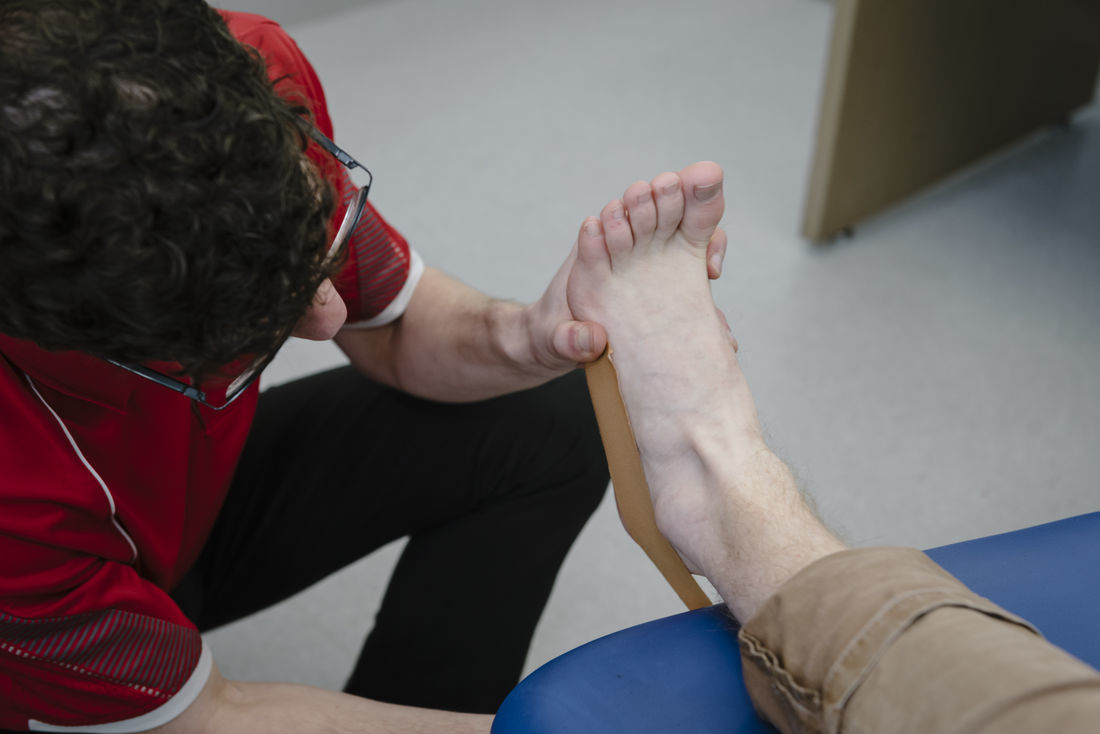Heel pain is a sensation most individuals are bound to experience at some point in their lives. Among the various types of heel pain experienced, plantar fasciitis is one of the most common.
While anyone can experience this type of pain, individuals who are overweight, wear shoes with inadequate support, and athletic runners are those most at risk of developing this condition.
Continue reading this post for a closer look at this aspect of podiatry and how you can treat and prevent this type of heel pain.
What is plantar fasciitis?
Plantar Fasciitis is a degenerative condition that weakens the plantar fascia as a result of repetitive trauma. Due to the frequency of this trauma, the body eventually loses the ability to heal, resulting in a chronic state of pain.
The sensation experienced is described as a stabbing pain that occurs when the first few steps are taken each morning. While pain decreases after some time, it can return after prolonged periods of standing or when rising after sitting for some time.
Generally, the plantar fascia acts like a shock-absorbing bowstring that supports the arch in the foot. If there is too much tension or pressure on this bowstring, degeneration can take place in the fascia. If this continues, this part of the foot becomes irritated, resulting in plantar fasciitis.
Symptoms of plantar fasciitis
Symptoms of this kind of heel pain may include:
- sharp or dull pain located inside the bottom part of the heel
- ache or burn
- mild swelling of the heel
The pain tends to become worse after prolonged periods of standing, sitting or after any kind of intense activity.
Risk factors
Certain types of sports and exercises
When it comes to activities like dancing, aerobic workouts, sports that involve ballistic jumping, and long-distance running, these place a significant strain on the heel and its attached tissues. This can contribute to an earlier onset of plantar fasciitis.
Age
This type of heel pain is most commonly experienced between the ages of 40 and 60.
Foot structure
Being flat footed or having an abnormally high arch. These affect the way weight is distributed, resulting in added pressure on the plantar fascia.
Obesity
Excessive weight can place extra stress on the plantar fascia, causing pain. Even pregnancy can place a strain on this part of the heel.
Occupations that keep you on your feet
Factory workers, teachers, and other professions that require individuals to spend most of their time on their feet can lead to a damaged plantar fascia.
How to prevent plantar fasciitis
To prevent this type of heel pain, recommendations from the field of podiatry include:
Maintaining a healthy weight
Given that individuals who are overweight or obese are more at risk, the first step to preventing plantar fasciitis is to maintain a healthy weight.
Choosing shoes with good support
Shoes with good support will prevent this part of the heel from being damaged. High heels must be worn only when necessary and athletic shoes must be replaced often. Essentially, your shoes must provide proper support.
Refrain from walking barefoot on hard surfaces
Another way to prevent the onset of plantar fasciitis is by wearing supportive footwear as soon as you wake up in the morning.
Be mindful about the exercise you do
For those vulnerable to this type of podiatry condition, low-impact exercises like swimming or cycling can prevent any damage to the relevant part of the heel. Afterwards, stretching the feet and calves is important.
Activities like running and jumping can place significant stress on the feet and make the calf muscles tighter if they aren’t stretched.
Untuck tighter bedsheets
For individuals that sleep on their back, tightly tucked bedsheets can cause the feet to be in a pointed position during sleep. This can strain the plantar fascia.
Treatment for heel pain
While there are many treatment options for plantar fasciitis, some of the primary recommendations medical professionals may make include:
Night splints
A sports doctor may recommend that you wear a splint fitted to your calf and foot while you sleep. This will secure the plantar fascia and Achilles tendon in a lengthened position overnight.
Orthotics
Orthotics are custom-made arch supports that are used to distribute pressure between the feet more evenly and stimulate small foot muscles.
Footwear
Your footwear plays an important role in helping to treat Plantar Fasciitis. Some key considerations included the appropriate shoe for the right activity, as well as shoes with the correct support in the proper places. Your Podiatrist will be able to help assess your current shoe and provide recommendations if any changes are needed
Physiotherapy and Podiatry
A physiotherapist or Podiatrist can teach you exercises that stretch the plantar fascia and Achilles tendon in a way that strengthens the lower leg muscles, thereby stabilising the ankle and heel. You may also be instructed on how to apply athletic taping to support the bottom of the foot.
Medication and other treatments
Depending on your case, other treatment options include medications by your doctor, injections and surgery. These are generally reserved for persistent cases and are used in conjunction with the treatments outlined above.
How can South Coast Medical help?
Through our podiatry services and with the support of qualified physiotherapists, we treat plantar fasciitis and other types of heel pain at South Coast Medical.
Contact us today to request further information on how we can help you live a life free of pain and discomfort.

